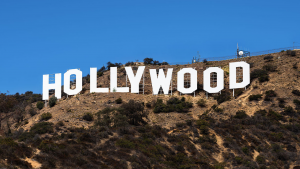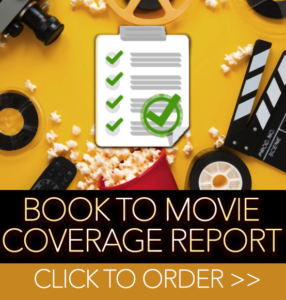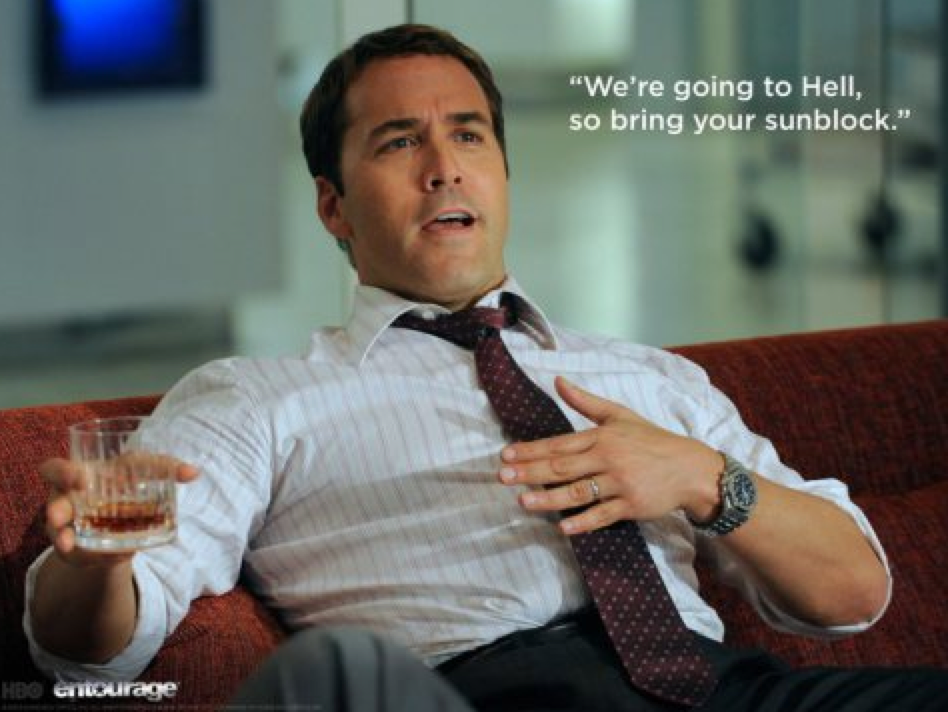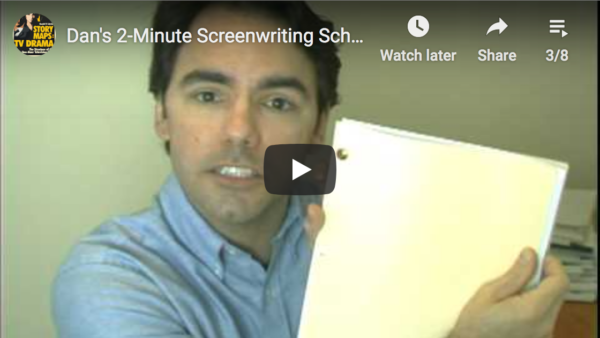 With input from our Hollywood contacts, here’s the 101 on how to get your book turned into a movie.
With input from our Hollywood contacts, here’s the 101 on how to get your book turned into a movie.
Ask yourself: Is your book going to make a good movie?
Books are a completely different discipline to a movie script, in that they have “interior voice,” and this is where most adaptations fail. Everything on the page has to be actionable on screen in a movie script. Movies need to have a three-act structure (beginning, middle, end) and must have a pretty standard concept (set-up, conflict, resolution). Despite us humans thinking we are complicated emotional beings, we still react to the same formulae as our ancestors. Most stories are based on concepts from Greek Tragedy: The hero’s journey, war, love, betrayal, or death. Getting a book turned into a movie is not easy. In fact, it’s nearly impossible.
If you don’t want to read all of this, try our Book To Movie Services to get started.
What a good screenwriter will do is take your story and make it work as a movie screenplay. They take the essence of the story and craft it into a workable plot, the credit saying, “Based on a novel” or “From the novel.”
Concentrate on making your book work
If you haven’t sold many copies, or your reviews haven’t been great, make sure you work on making the source material the most successful it can be before you embark on the adaptation journey. It’s going to save you a lot of energy, time, and money in the future. You’re far more likely to be offered a movie deal if you sell thousands of copies.
To sell copies and get reviews, why not try our Amazon promotion packages here?
(Stuff you shouldn’t bother doing at all)
If someone picks up your story, they will do these things, so don’t:
- Write a soundtrack or songs for your movie
- Record a soundtrack
- Create a movie poster
- Create character studies or illustrations
- Make a list of who should be in your movie and show it to anyone
- Make a list of who should direct your movie and show it to anyone
- Create a budget and show it to anyone
- Contact anyone, such as actors or bands, about making any of these things happen
Any of these things will not only make you look amateurish but also crazy.
When Tommy Wiseau tried to do exactly that with his movie “The Room” in 2003, he ended up with one of the worst films in history. So bad, in fact, that it still gets shown for people to laugh at. He still upholds he is a genius, and that the laughter is enjoyment, not mockery. He has now had a Hollywood movie made about him called The Disaster Artist, starring James Franco! So you decide who’s laughing now…

A word about trends
Every time a successful movie comes out, writers who know no better jump on the trend and try to write that same story – with a twist. Unfortunately, the truth is it takes years to make a movie, so by the time you’ve even written the script you are years out of date for what is being sought out by agents and producers. Your best bet is to keep original and hope to stand out.
Here are the best Book to Movies out there.
You’re going to need a screenplay
You cannot just send your book out to movie people UNLESS they are solicited to great directors from great publishing houses and studios who have people diving into successful books. There are exceptions to this: “The Shining” reached Stanley Kubrick via a reading pile before it was even published, selected by my mother-in-law, Carol Friedland Baum, then to John Calley, a friend of Kubrick’s from Warner Bros. who had the manuscript of the book after Kubrick asked for a pile of horror books to be brought to his office by his secretary. Factoid: Kubrick rejected King’s subsequent screenplay, calling the writing “weak.” See this interview with Michael Ciment.) This does press the point that the best way of getting your book made into a movie is by having a wildly successful book.
If you have not been to film school, or you are not already in the screenwriting business like George R.R. Martin (Game of Thrones) or Suzanne Collins (The Hunger Games) were when they got screen-adapted, you should hire someone to do it for you. A professional screenwriter knows how to format a script so it is accepted into a reading pile. If your script is not formatted in this way, even down to how many fasteners it has, it will be thrown away immediately. Read this list from screenwriter Susan Kougell to find out what you could do wrong.
You shouldn’t write your own screenplay unless
- You are a qualified film college student who studied screenwriting
- You have been a screenwriter on the job for years
- You have hours to put in to learn how to write a screenplay
- You have Final Draft software to write your final screenplay
- You understand how a screenplay is constructed
- You understand how a screenplay is presented
- You are willing to rip the guts out of your book and reform them into 100 pages of exterior, actionable content
What to expect when ordering a screenplay adaptation
- For a start, you need nothing but a script. Many services offer other stuff like a synopsis, but basically, if your script doesn’t grab anyone on the first page, forget it. A proper screenplay is usually around 100 pages long, with one minute of screen time per page. You should, and will, get nothing but the finished product. Anything else is guff.
- This work will require hours and hours of the writer’s time, and you being a complete pain in the ass for a long, long while. Expect to pay upwards of $4,000 for a properly formatted script. Do not expect or go for a quick and dirty job, hence the price you will have to pay for the work. It has to take more than 100 hours to work on a draft, and even at 20 bucks an hour, you’ll be lucky to find anyone worth their salt to work on the book for you.
- You should expect a three-month turnaround, minimum. Anyone offering less probably doesn’t understand screenwriting.
- They will read your book, make notes, write a punch-up/beat sheet (a one-sided sheet that lists main plot points) and on approval, they will draft your movie script.
- After you read it, you may get it “polished” i.e. the writer will finish it up.
- This should be done in Final Draft software, and printed and presented properly in what is called “Hollywood Standard”, not in Word, not stapled, not folded.
- See my notes on how to present a screenplay in the downloads
The Legalese
- Make sure you establish a ghostwriting situation, where the writer is not credited; or a credited situation, where the writer will be paid royalties if the movie is made, upfront. Ghostwriters typically cost more because they are losing out on potential royalties. Remember you will not be the one to pay royalties if they have a credit, so there’s no harm in it financially for you. A credited screenwriter may have agents and financiers who always read their work, so it could help your film get made if you choose an established writer. A credit will read, “Screenplay by” and “From The Novel By.” Typically, a screenwriter would be paid 2% of the production budget and 3% of producer’s gross, neither of which you have to pay for at all.
- Choose a writer who has experience with full-length movie scriptwriting, not just someone who wrote a few shorts – make sure their screenplays have been made into movies with reputable companies. You can look at their credits on IMDB.
- Truth be known, there’s not much point in getting a confidentiality agreement. Most screenwriters doing this work are doing it while they work on their own opus. But it’s wise anyway, so if you want you can go ahead and sign something before contracting, remembering that common ideas cannot be copyrighted, i.e. a princess in danger, a soldier traumatized by war, a homeless man who lost his wife. Expect to make a note of key points and book title only. Read the chilling facts of the court case surrounding “Gravity” the movie by author Tess Gerritsen if you want to find out how useless these agreements actually are, especially against macho Hollywood studios.
- It’s normal to pay two ways: An individual writer will want half upfront, half on delivery, while a service will probably ask for payment upfront and the money will be held in PayPal or Escrow until completion. Don’t expect to pay at the end.
- Any good book to movie service provider will have a standard contract for you to sign at some point in the process. If they don’t, you have to wonder why.
Don’t get precious
- Ensure you understand what the delivery points will be. Most book to movie services will deliver a script that gives you the best opportunity to get your script optioned, not exactly what you see as the movie in your mind.
- Don’t micro-manage the process. Screenwriters do this stuff all the time. Let them do it. They will contact you if they need to ask you something. It’s not your baby. It’s a product for pitching, and it has to look and read correctly.
Solicitation of Screenplays – or how to get an agent
- Ari Gold from Entourage showed us being an agent is a hardcore job
There’s a myth that you cannot send scripts out unsolicited, that is, “nobody wants to know about your lousy script.” The truth is, it’s how you approach it. You need to have a solicitation to get an agent, or to get your script seen, because it’s basic business manners. One huge error would-be movie writers make is to send their script as an attachment to every industry email they can find with a synopsis. This is the LAST WAY to get seen.
When I was working on a movie as a producer, I would get, and still get three years later, a bunch of scripts landing in my email inbox every day. Nobody would say hi, or please. Instead they just sent out this stupidly rude email telling me I should read their screenplay. These emails were often a page long, as if I had nothing better to do. I delete them all and block them.
Richard Walter, screenplay expert at UCLA (and my teacher when I studied there) recommends that you ask if you can send it along first. When you get a reply saying, “Sure, I’ll take a look,” you just got solicited. Then you are in.
Send nothing but the script and a very short letter with a logline, 1-3 lines of text explaining your story (more at Elements of Cinema):
THE SHAWSHANK REDEMPTION – Two imprisoned men bond over a number of years, finding solace and eventual redemption through acts of common decency.
BIG NIGHT – Two very different brothers promote their struggling 1950s New Jersey Italian restaurant by inviting Louis Prima and his band to take part in a sumptuous dinner there.
BRIDGES OF MADISON COUNTY – An Iowa housewife, stuck in her routine, must choose between true romance and the needs of her family.
What to send
Some people send photos of themselves, bios, pictures of their kids even. You need nothing but the script, bound Hollywood style, or sent by email with nothing else but the screenplay. Here’s a video from Dan Calvisi, a screenplay editor, at actfourscreenplays.com showing you how to bind a script.
Don’t ask them to sign a confidentiality agreement before they read your script. Do that, and they will blow you a big fat one.
Following up your submission
Basically, don’t. If someone read the script and thought it was the next Brad Pitt movie, don’t worry, they’ll call you, email you, or ride on a donkey across Siberia to meet you. If they don’t, leave it. Some people have a year-long line of reading to do. Most people worth knowing have five weeks’ worth of email to plow through. Leave it. If they don’t answer, they didn’t want it. On average I have found I get a reply around two weeks later, but quicker if there is a piqued interest. (Sometimes, quicker still if it’s a flat no.)
Turns out Amazon Customer Reviews are not that important to agents or producers
So what is important? We asked our contacts for the main things they look at:
- Your story has a completely original true-story hook, such as Unbreakable, The Wolf of Wall Street, 12 Years A Slave, or Captain Phillips,
- OR: Your movie is High Concept. High Concept is when a movie idea has a strikingly simple but very poignant tale to tell. Think:
Se7en – A serial killer takes down victims based on the seven deadly sins.
Groundhog Day – A man relives the same day over and over
Three Men and a Baby – What the title says
The Matrix – A hacker learns the truth about reality
Limitless – A man takes a pill that gives him the power to do anything
Being John Malkovich – A puppeteer finds a portal into the head of actor John Malkovich
- It has a better chance of making it if it appeals to the “four audiences”: all genders, under-25s, and seniors. This is often called a “four-quadrant” story such as Titanic, Mrs. Doubtfire, Meet The Parents, AI, and Indiana Jones. Read more about these story types at ScreenCraft.org.
Although not all producers or financiers will bother looking at these things if the screenplay is that good, it helps if:
- you have provably sold a lot of books (more than a few thousand) and have ranked highly in categories, and continue to do so
- you have a growing fan base online and offline, provable on a Google search on Goodreads, Facebook, etc. and there’s a social buzz, i.e. other people are discussing them and the book independently of the author’s websites etc.
- your book is well-edited and presented well
- the book has positive Amazon Editorial Reviews (you can display these on Amazon’s Editorial Reviews section through Author Central) written by well-known reviewers, magazines, and trusted review companies (you can start with SPR, Indiereader, Kirkus etc.) Here’s an article on optimizing your Amazon Author Central page by self-publishing expert Carla King at Bookworks. She advises, “You can, and should, add up to five editorial reviews yourself.” Some authors have copied their Customer Review “best bits” into here, but that’s just not good enough. Professionals want professional opinions. Open that wallet, let the moths out, and get yourself some professional opinions!
Get yourself an Editorial Review here at SPR or here at The Independent Review of Books.
Everyone knows it’s easy to buy fake Customer Reviews on Fiverr, so anyone’s first reaction to a book that doesn’t rank and has no buzz online but has thousands of Customer Reviews is “so what?” You need to build a genuine buzz with Verified Reviews and sales. Use our safe and effective Amazon Promotion service to improve your chances instead.
 Coverage Reports
Coverage Reports
When a producer is interested they may commission a Coverage. This is a report that tells them how viable your story is as a movie, and how successful it may be. We have a service uniquely designed to carry out coverage on a book rather than a screenplay, so you can get feedback before you turn your book into a movie script. Take a look at the service here.
Optioning
An option is when a producer, investor, or director decides they like your story, and they want you to allow them the exclusive first-pick rights on it, should they decide to make it into a movie.
Optioning can occur when filmmakers are not sure if they want to make your story into a film, but see a possible trend coming that may fit the profile of your book’s tale. An option prevents you showing it to anyone else for a set amount of time. An option can be as little as $1 — yes really — but $200 is normal for a new indie idea with no connections and no track record, so if any author boasts that their book has been “optioned for a movie”, this can mean nothing or something, but usually nothing. For instance, Henry Baum, owner of SPR has had his books optioned multiple times, and yet, no movie has transpired, even with this short by Zombieland director Ruben Fleischer some years ago.
Options are like a very small carrot to a very large donkey and mean you have not been thrown on the pulping pile, so while you should be pleased someone else liked your idea enough to part with some cash, it’s really just to keep that script off the market while they think on it. Some options are to keep your script off the market because it’s like another script they themselves are trying to make. There’s nothing you can do about this without being psychic.
So, options can also be a very bad thing because they can stop you from getting your film made at all because you have to wait for the option period to run out before you can try again. Make sure your option period is not for more than a year or two if it is a very low cash amount, because you might miss out on another opportunity while your script basically doesn’t exist.
The terrible case of The OA being canceled on a seemingly crappy contract made by young writers only highlights how dangerous it can be even when you have a hit show on Netflix. Now, creators Brit Marling and Zal Batmanglij have had to walk away leaving their ideas trashed and trapped in Netflix forever due to contractual ties. Read about that here in Deadline. #SaveTheOA
Make sure also that your option doesn’t stop you from selling your book to a publisher. Some options have clauses preventing you from even promoting your book so the story remains hidden until such time they make the movie.
Attachment
It’s not your job to get attachment for your movie, so don’t. If anyone asks you who is attached, refer them to your agent or producer. *oh yeah, you need one of them, see below*
Attachment is simply when a producer manages to get a “talent,” i.e. a director or an actor, to say they have an interest in the movie.
One technique that a talent’s “people” will use is to attach a talent to a wide range of projects, and then see if the movie gets funded, and also to see who else attaches. Attachment consists of a letter, signed or notarized, that says the talent is interested in being in the movie if it should come to fruition. There is rarely any binding agreement in attachment.
At this point a producer has to juggle a million attachment possibilities and tell lies, such as, “I am waiting for attachment from Mr. X, and their people have read the script.” Translate this as “I want Mr. X to attach and I have couriered the script, and they actually answered my email with two words!”
Everyone lies in Hollywood, because it’s the city of fantasy. You have to wait for a chicken and egg situation: miraculously get two or three good attachments at the same moment as people drop in and out (much like Whack-a-Mole) until the producer can show the star they really want the attachment letters in their hand. At this point, funding is possible. However, even with attachment, a studio might not make the movie.
One manager in Hollywood I spoke with once said, “Everyone is attached to everything in this town.”
Until you get the “green light”, you have no movie at all.
Don’t get precious Part 2
Once you get a movie deal:
- Be aware you will NOT be the central point of the making of the screenplay, but you may be asked to visit the set or asked to add your advice to the story, or not. Probably not.
- Be aware your story may be changed to such an extent that character names and personalities and even motivations may be changed or cut drastically. For example, Hitchcock inexplicably made the protagonist of Patricia Highsmith’s novel Guy Haines a famous tennis pro instead of a struggling architect in Strangers on a Train, which destroyed the dynamic Highsmith had created. In the movie adaptation of her novel, The Talented Mr Ripley, Matt Damon’s character Ripley is suddenly gay, though in her novels, he falls in love with a Frenchwoman. But they are both great movies.
- Be aware that your script might be rewritten multiple times without your input once you have signed a deal.
- At the same time, make sure anything you sign gets you a good deal. Get an entertainment lawyer to look over any contract you want to sign once you are offered an option.
Get an Editorial Review | Get Amazon Sales & Reviews | Get Edited | Get Beta Readers | Enter the SPR Book Awards | Other Marketing Services

























In my experience, getting your book sold to Hollywood is largely a fluke and not something you can really plan for. For example, my book KISS HER GOODBYE was made into a pilot for CBS television. But the route to that pilot had absolutely nothing to do with me other than I managed to write a compelling book that someone saw possibilities in.
The producer of the show walked into a bookstore one day, saw an anthology of mysteries stories that I had a short story in, read my story and liked it. So he decided to buy my first book and check it out. He loved the book and asked my agent if the rights were available.
So a completely chance encounter in a bookstore led to a television sale. Something I never could have planned. The fact that it made it all the way to film is something of a miracle since most projects are abandoned at some point.
I don’t mean to be a naysayer, but instead of investing any time an energy dreaming about seeing your book on the screen, just concentrate on writing a great book. And another one. And another one. That is the ONE thing you have control over.
Wow, firstly, WELL DONE! Seems you have the miracle touch! I agree, the best thing to be done is to have a good book. But doing everything right on the way can’t hurt towards that goal, considering how difficult it is!
I would consider it a life achievement if an original story that I wrote ever made it to become a movie. I have a lot of respect for people that have succeeded at this. I have been working on a novel of my own for some time now. I know I will finish it. I agree that the best chances are just writing a really compelling book firstly. And if the story is something compelling and fresh, then that’s the best chance anyone ever has of seeing an adaptation of their vision on the silver screen.
Yes, it would be fantastic! Good luck with your books!
Hi can someone please help me to find out how i can find someone to help make my friends book – A Moral Criminal written by Lenny flood the brother of the true life Gangster Dougie flood member of the Manchester city’s infamous ‘Quality Street’ gang, helping fight off the Kray twins at Piccadilly train station and the book is a true life story so this would make a fantastic film please if anyone can help it would be much appreciated .
If we knew the million-dollar answer to that question…there’s no simple answer. But we’ll leave the comment here for others to read!
I feel my book shattered dreams isbn# 0-595-33800-3 is a movie waiting to happen. Kevin Costner hope you see this!!!
This post has taught me a lot about wanting to get my book to screen. I feel my new book “Coma” would make a great movie and creating a map to get to that goal is key. – Razgiem-
I have every single duck in a row lined up except the dreaded Breakout, Blockbuster sales. It’s a brisk seller the great reviews. Even though my agent backs me up and says it’s groundbreaking, she admits that huge sales and world-of-mouth are needed before any producer/director blinks an eye. Guh. So, I continue to push like mad and market the hell out of it, at great cost and energy.
My story is true, about a coal mine in Plymouth, N.S., Canada. May 9/92 there was an explosion that rocked the community at 5:18 am, killing twenty-six co-workers. I’d just lifted ten hours before the explosion happened, I was working an overtime shift that morning I was going underground as bare face rescuer. No sleep for five days, my last rescue shift at Westray followed me home. The story everyone ought to know and read it, told in the simple words of the man who lived it, me! (Vernon Theriault). Name of the book, Westray My Journey from Darkness to Light. Can be found on Amazon.ca, Amazon.com or Chapters book stores, and the book is in French.
I am busy writing my next book…it’s an ongoing Paranormal series. I already have something who wrote to me offering a contract fo this book. Its called ETYMOLOGY-evolution form by Mponeng Nada. The book is a thing of nightmares…..
I also wouldn’t mind doing a collab with some of you out here.
Excellent advice which is to the point.
I have a book coming out in the next two weeks. There isn’t a story out there like it. It’s based on a true story and it is going to rock the entire universe.
Google: Flying Tiger Flight 923/ out of body experience.
That’s my story written by me. I’m 81 and want to have something to leave to my kids.